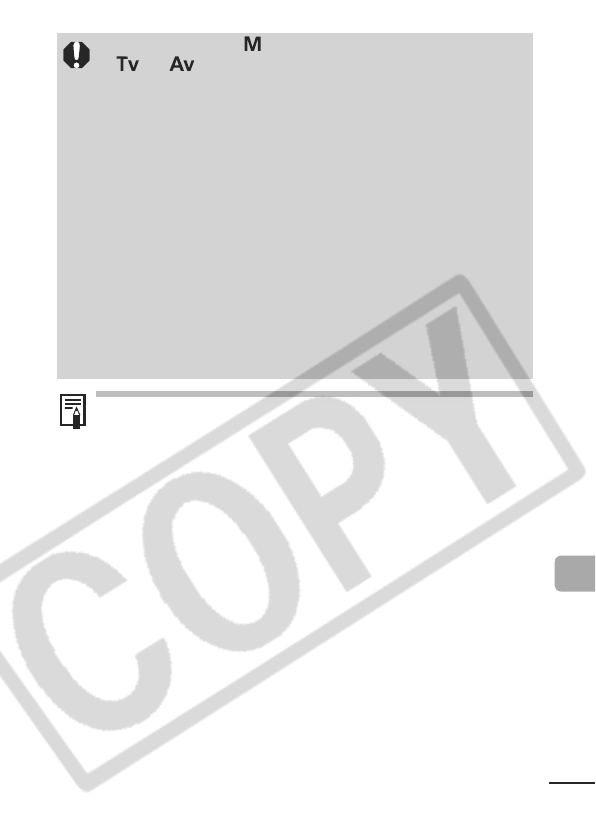
113
Appendix
Batteries
z
Charge becomes Severely Limited
If the battery usage time has considerably diminished, wipe the battery
terminals well with a dry cloth. The terminals may be dirty from fingerprints.
z
Usage in Cold Temperatures (Less than 0°C/32°F)
Get a spare generic lithium battery (CR123A or DL123). You are
recommended to place the spare battery in your pocket to warm it
up before switching it for the battery in the flash.
z
Non-Use over Extended Periods
Leaving batteries in the High-Power Flash could allow the battery
fluid to leak, damaging the product. Remove the batteries from the
High-Power Flash and store them in a cool, dry place.
zWhen shooting in mode, or when [Flash Adjust] in the
or modes is set to [Manual] (p. 65), the High-
Power Flash will not fire.
zThe flash charge time will lengthen as the battery charge
gets weaker. Always set the power/mode switch to [OFF]
when you finish using the flash.
zBe careful not to touch the flash window or sensor
windows with your fingers while the flash is in use.
zThe flash may fire if another flash is being used in close
proximity.
zThe High-Power Flash may not fire outdoors in daylight or
when there are no reflective items.
zFor continuous shooting, although the flash fires for the
first shot, it does not fire for subsequent shots.
zFasten the attachment screws securely so that they do not
loosen. Failure to do so may lead to the dropping of the
camera and flash resulting in damage to both.
zBefore attaching the bracket to the flash, check that the
lithium battery (CR123A or DL123) is installed.
zTo illuminate the subjects properly, install the flash so that it
is up against the side of the camera and parallel with the
camera’s front panel.
zA tripod can be used even when the flash is attached.


















